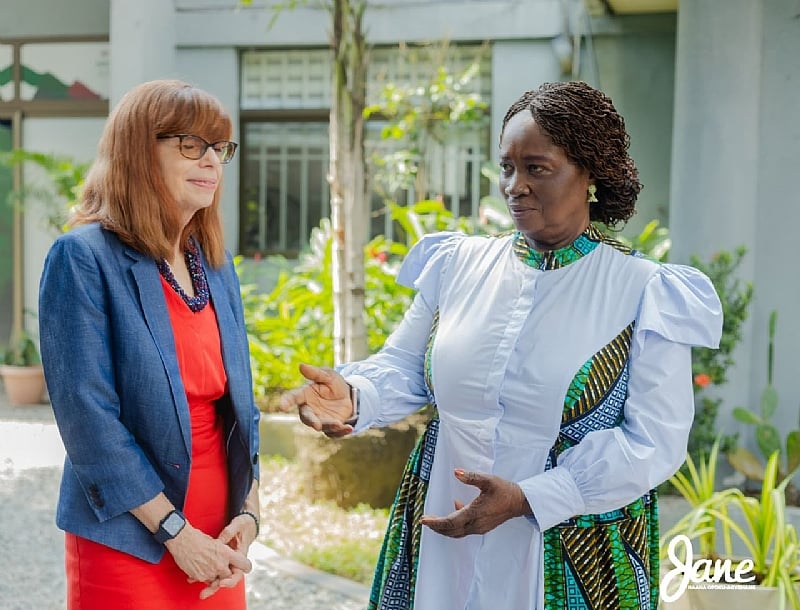The meeting between Ghanaian Vice President Professor Naana Jane Opoku-Agyemang and Australian High Commissioner Berenice Owen-Jones underscored the potential for a strengthened bilateral partnership, particularly in the agricultural sector. Professor Opoku-Agyemang highlighted the complementary nature of the two nations’ agricultural landscapes, with Ghana possessing vast tracts of arable land and Australia boasting advanced agribusiness expertise. A deeper collaboration, she argued, would be mutually beneficial, enabling Ghana to address its food production challenges while offering Australia new avenues for agricultural investment and trade. This strategic partnership, envisioned by the Vice President, has the potential to create long-term solutions for Ghana’s agricultural sector, moving beyond short-term fixes towards sustainable and robust food security. The emphasis on collaboration signals a shift away from reliance on external aid towards a more equitable and sustainable partnership model.
High Commissioner Owen-Jones echoed the Vice President’s sentiments, outlining concrete steps towards realizing this collaborative vision. Central to this is the proposed expansion of the Australian Centre for International Agricultural Research (ACIAR) to Ghana. This expansion promises to inject much-needed research and innovation into Ghanaian agriculture, aligning with the government’s focus on mechanization and the broader goal of achieving food self-sufficiency. ACIAR’s involvement could facilitate the transfer of Australian agricultural technology and best practices, enabling Ghanaian farmers to enhance productivity and improve the quality of their produce. This initiative signifies a tangible commitment from Australia to support Ghana’s agricultural development, moving beyond mere rhetoric towards practical, on-the-ground support.
Beyond agriculture, the discussions encompassed other crucial areas of bilateral cooperation, including mining and community development. High Commissioner Owen-Jones emphasized Australia’s substantial mining investments in West Africa, with Ghana being a significant recipient. She highlighted the upcoming Atlantic Lithium project as a potential catalyst for job creation and economic growth, pending parliamentary approval. This project, with its projected creation of over 900 direct jobs, underscores the potential for responsible mining to contribute significantly to Ghana’s economic development. It also indicates Australia’s continued interest in investing in Ghana’s mining sector, recognizing the country’s rich mineral resources.
While acknowledging the potential economic benefits of mining, Professor Opoku-Agyemang stressed the importance of sustainable mining practices. She emphasized the need for these practices to align with Ghana’s broader developmental goals, ensuring that mining activities contribute to the country’s long-term prosperity and do not come at the expense of environmental sustainability and social equity. This highlights Ghana’s commitment to responsible resource management, ensuring that the exploitation of its natural resources benefits its citizens and does not lead to environmental degradation or social disruption.
The meeting also highlighted Australia’s ongoing commitment to community development in Ghana through its Direct Aid Program (DAP). High Commissioner Owen-Jones reaffirmed Australia’s dedication to supporting vulnerable populations, including women, children, and marginalized communities. The DAP, with its focus on targeted interventions, aims to empower local communities and enhance their resilience. Professor Opoku-Agyemang lauded the program’s impact, advocating for increased funding to further bolster its effectiveness. This reflects the shared commitment of both countries to fostering sustainable development, recognizing that economic growth must be accompanied by social progress and the empowerment of vulnerable populations.
In conclusion, the meeting between Vice President Opoku-Agyemang and High Commissioner Owen-Jones signifies a renewed focus on strengthening the Ghana-Australia partnership. The discussions centered on mutually beneficial collaboration in agriculture, mining, and community development, with an emphasis on sustainable practices and long-term solutions. The proposed expansion of ACIAR to Ghana, the potential of the Atlantic Lithium project, and the continued support through the DAP represent concrete steps towards realizing this shared vision. The emphasis on sustainable development and economic growth underscores the commitment of both nations to building a resilient and prosperous future for Ghana, based on principles of mutual respect and shared benefit.


